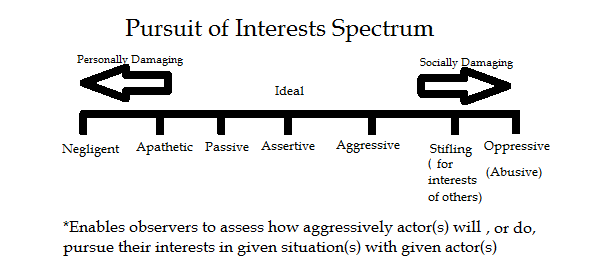|
The Dilma Rousseff impeachment controversy, along with the underlying Petrobras scandal, has forced Brazil and corruption into the international spotlight. Although the President joins 60% of Brazil’s Congressmen facing accusations of corruption, Dilma contends that she is innocent of any wrongdoing over her alleged role in transferring money from state-owned oil company Petrobras to hide a Dudget deficit during her reelection campaign, in funding her campaign, and in shielding her predecessor Luiz Inácio Lula da Silva from prosecution. Given competing narratives, this case raises the question of what actually qualified as corruption. Hordes of Iraqis reminded the world why the Arab Spring Revolutions happened in late April by storming the secure “Green Zone” in response to government corruption. Ahead of the Global Anti-Corruption Summit, British Prime Minister David Cameron managed to spark controversy when he declared Nigeria and Afghanistan “fantastically corrupt.” Where the US annually spends hundreds of billions of dollars to fund “waste, fraud, abuse, and mismanagement,” Russia’s plutocratic leadership has basically made their political influence into Russia’s unofficial currency. Clearly, corruption is a global issue that needs addressed. To address corruption, it is helpful to distinguish between “corruption” and the legitimate business of the ruling government. Corruption is the illegitimate use of official assets, influence, and relationships to pursue one’s personal interests or political agenda. Traditional, non-liberal governments, e.g. monarchies and empires, do not focus on the rights and interests of the Peoples, because they exist to be served by their Peoples. The ruling authority views the territory and assets of their country as their own property, thus the term “corruption” lacks meaning, yet the practice still foster rebellion, e.g. the Arab Spring Revolutions.
On the other hand, modern governments exist to serve the Peoples of their nations; therefore, public officials need the consent of their Peoples to make their salaries, for example, legitimate and not the result of corruption. Looking at communist North Korea, which espouses a form of government where the assets of the State are supposed to belong to the People, corruption is the law of the land. Not only does the Kim Jon-Un regime use its authority to thoroughly suppress any political dissent, it diverts national resources to its ruling class. Like the US, the North spends a significant portion of its GDP on defense. Both levels of defense spending could be considered excessive and unjustifiable. The difference is that US military preparedness is not used to isolate the country from the world. North Korea’s efforts to intimidate the world with nuclear bombs and ballistic missile tests, is, in part, a means of preventing the world from reaching the North Korean People. It is also means of ensuring the Communist leadership can maintain complete and absolute control over its People. Totalitarianism is both an abusive form of government and an extreme form of corruption. Furthermore, it is only necessary to understand corruption is a component of abusive leadership. Unfortunately, abuse is a concept people struggle to understand. The violence involved in physical abuse is simply a tool by which abuse is expressed. In reality, controlling behavior, manipulation, verbal abuse, emotional abuse, and other forms of personal attacks are just avenues for abuse. Although examples of these types of abuse help people recognize the possibility that a government is abusive, the most effective means of distinguishing between abuse and non-abusive behavior is to build a definition around the purpose of abusive behavior. The problem with defining abuse is that for every act, which can be interpreted as abusive, there are legitimate reasons for responding in such a way. If someone threatens or attacks someone, their response is self-defense, whether it involves a violent or aggressive response. Verbal, emotional, and psychological abuse, in general, are often ways of defending oneself, especially when an individual is particularly passive-aggressive. Meanwhile, social abuse, such as bullying, slander, harassment, and abusive uses of peer pressure, can be difficult to distinguish from acceptable behavior. People engage in abusive behavior to try to get their way when others will not, or cannot, compile with their impulses and other demands. Clearly, life is centered on the pursuit of one’s interests while society functions on the balancing of everyone’s interests. Looking at abusive behavior as the extreme of a spectrum that charts the pursuit of one’s interests, the meaning of abuse can be understood in broad terms, not just examples of abusive expression. On the one end of the spectrum, actors hurt themselves by pursuing their interests, not necessarily by choice, in passive to apathetic to negligent ways. On the other end, actors hurt others when they pursue their interests in overly aggressive to abusive ways. Any kind of behavior can be abusive. Ideally, governments, as well as people, are able to pursue their interests in an assertive manner. By defining abuse in terms of pursuing interests, efforts to stop abuse can focus on steering abusive actors toward healthier ways of pursuing their interests and expressing any grievances they might have.
Comments
|
Read old posts
April 2020
|


 RSS Feed
RSS Feed
